"Juice half a lemon" may seem like a straightforward instruction, but it's not the most precise measurement. Depending on your fruit's size, that "half a lemon" might make your meal way too tart. If you crave a more scientific understanding of the phrase "half a lemon," then you've got to check out the research we've done on this juicy topic!
Half a lemon usually contains about 1 - 1.5 tablespoons of juice. However, chefs always recommend assuming each of your lemons has two tablespoons of juice to ensure you buy enough for your recipe.
The amount of lemon juice you put in a recipe could significantly alter its flavor. Please read through the kitchen hacks below to ensure your cocktails and cod filets have just the right hint of citrus.

What's Equivalent To The Juice Of Half A Lemon?
When recipes call for "half a lemon," they usually mean between 1 - 1.5 tablespoons of juice. Most medium-sized lemons have roughly 2 - 3 tablespoons of juice.
While these numbers could vary depending on your lemon's size and the pith's thickness, it's best to use these measurements as a benchmark.
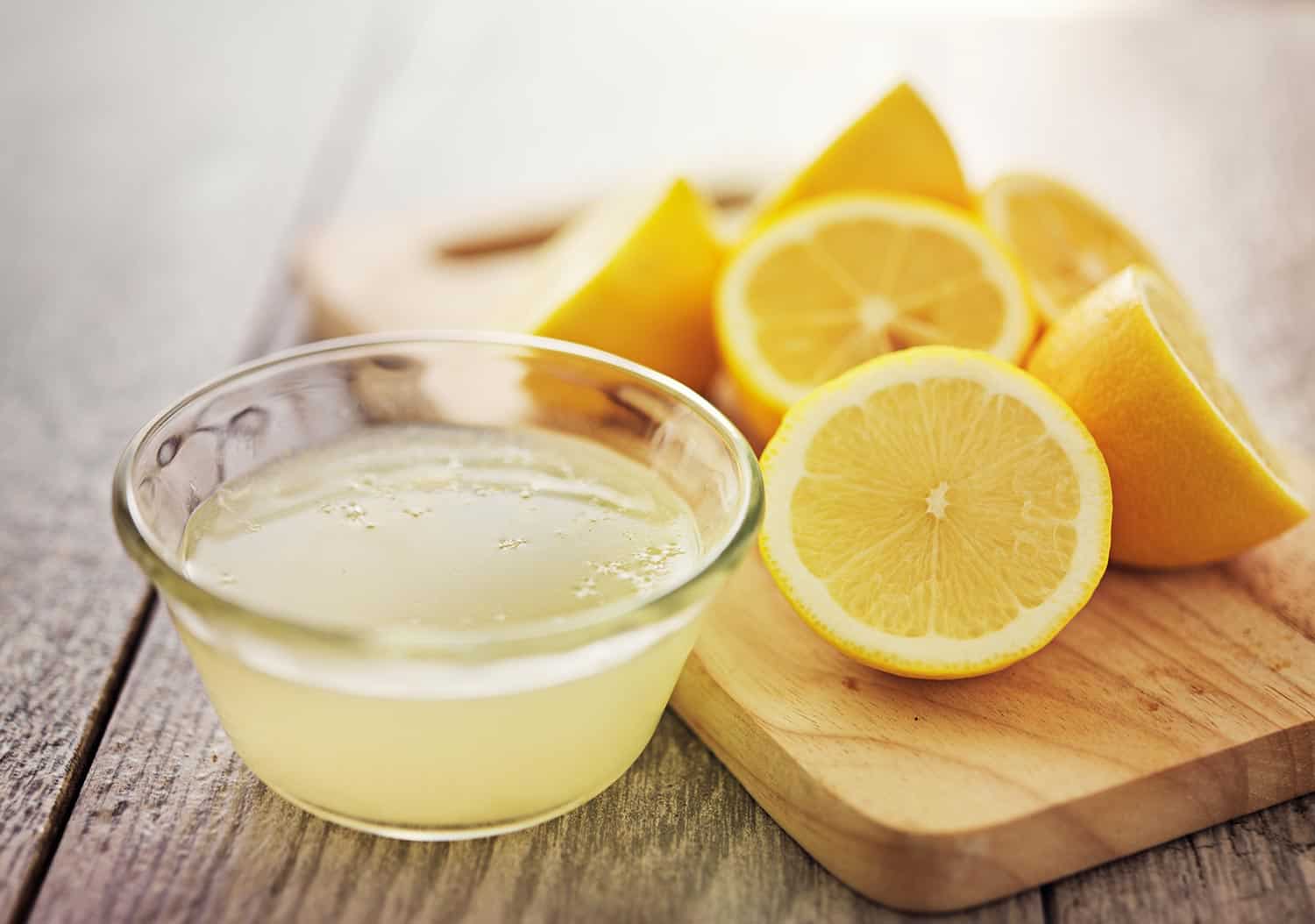
How Much Juice Is In A Lemon?
One medium-sized lemon usually has between 2 - 3 tablespoons of juice.
These estimates are deliberately on the low-end because most chefs recommend downplaying your fruit's liquid content. This way, even if you grab some not-so-hot lemons at the supermarket, you won't have to worry about having too little juice.
For a more detailed breakdown of average juice content for different lemon sizes, check out this tutorial:
Can You Use Bottled Lemon Juice Instead Of Fresh Lemon?
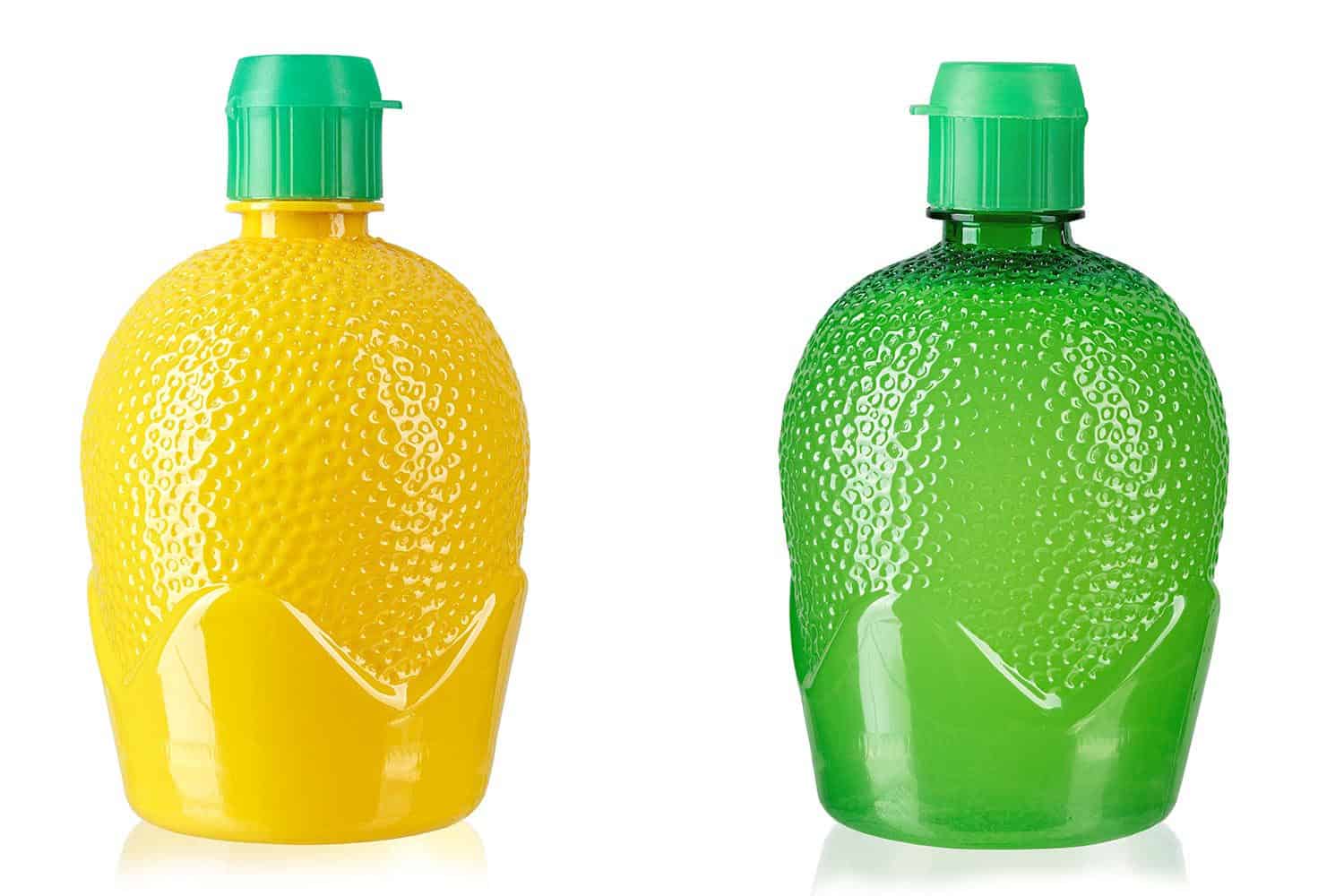
It's OK to use bottled lemon juice in recipes that call for fresh lemons. Indeed, since this pre-made product is just lemon juice with extra preservatives, it will taste similar to fresh-squeezed lemons.
We say "similar" because some manufacturers add sneaky ingredients into their bottled lemon juice. For instance, some products may add sugar or artificial sweeteners.
Some chefs also claim fresh-tasted lemon juice tastes "better" than bottled brands. However, since everyone's palate is slightly different, you may not notice a big flavor difference.
Remember that bottled lemon juice products could have traces of preservatives like sodium benzoate. A few studies suggest sodium benzoate could increase bodily inflammation.
However, a few lemon juice brands have opted to package their products with alternative preservatives or organic ingredients.
Find out more on this Amazon link.
Please be sure to read each product's ingredients list before purchasing.
As long as you feel comfortable with your bottled lemon brand, it can save you some time in the kitchen.
Is Bottled Lemon Juice Stronger Than Fresh Lemon?
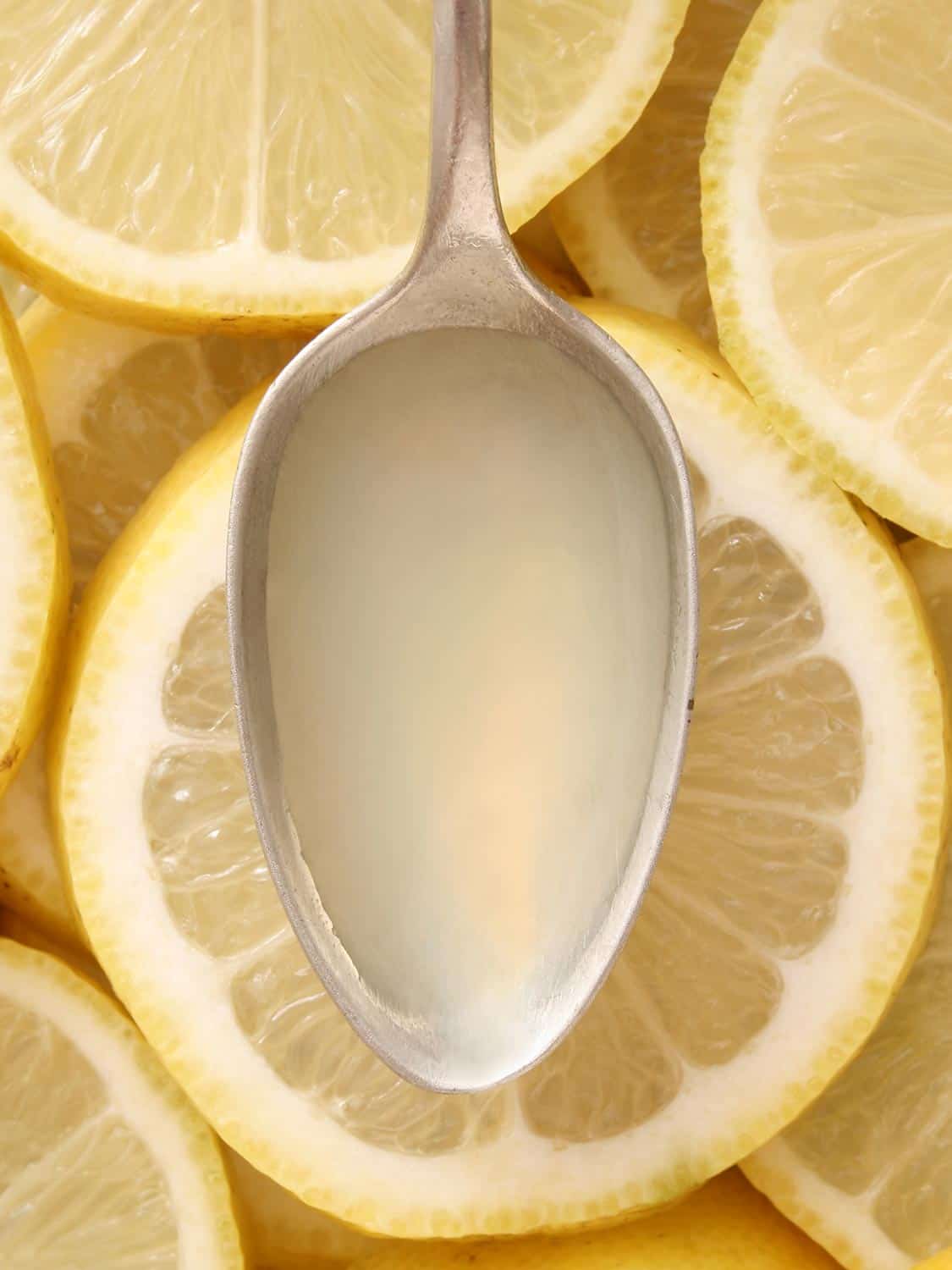
Everyone has a different opinion on whether bottled lemon juice is stronger than the real deal. In all honesty, how you taste bottled lemon juice will depend on which brand you're using and your taste preferences.
However, many pro chefs argue that fresh lemon juice tastes "better" because it has little time to oxidize and zero preservatives. Just keep in mind, there's no scientific evidence to back up these claims. Every chef will have a different experience with bottled lemon juices.
The best way to determine whether bottled lemon juice is "stronger" than fresh lemon juice is to do a blind taste test with family or friends.
Is Lemon Extract Stronger Than Lemon Juice?
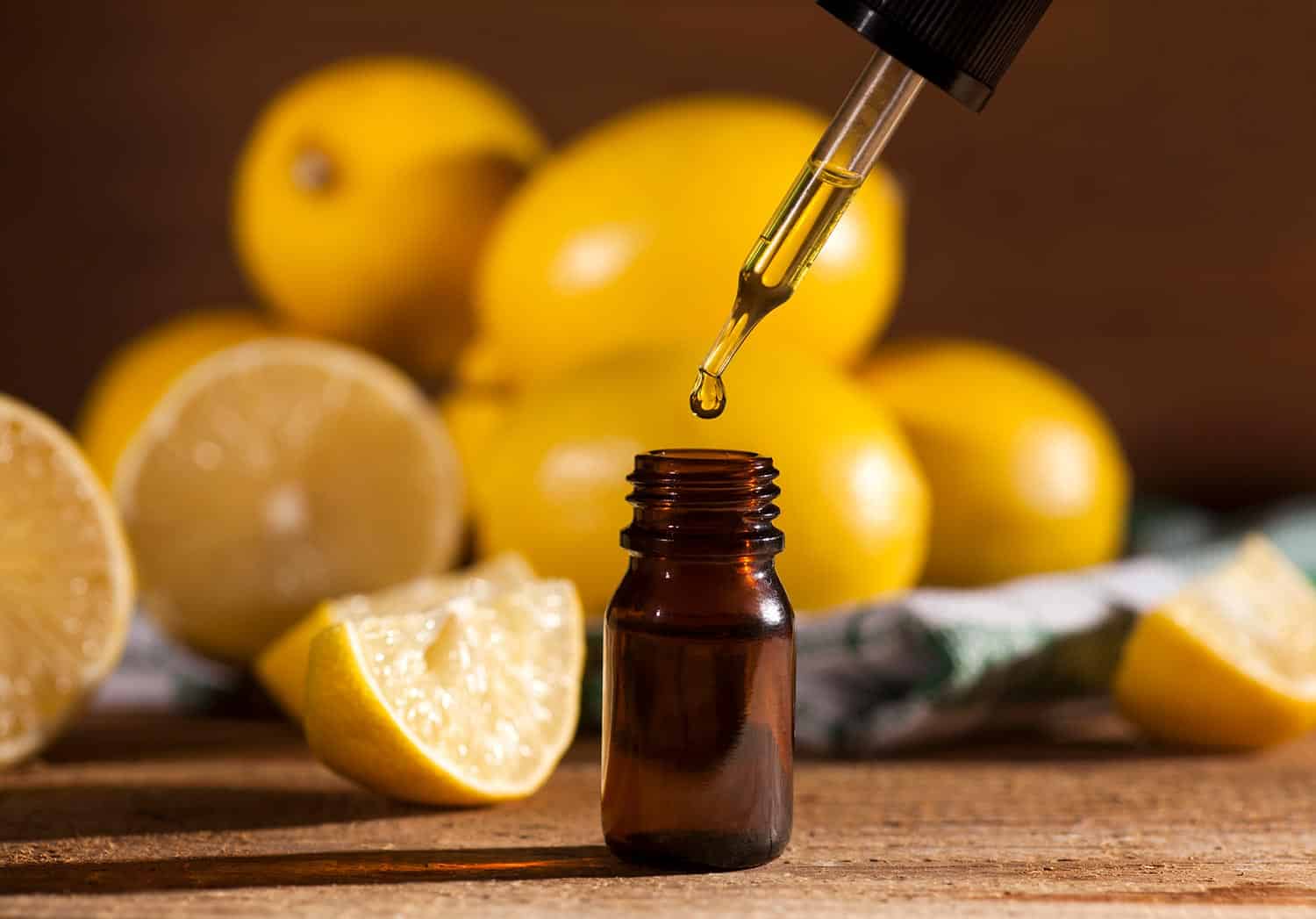
Lemon extract is far more intense than fresh or bottled lemon juice. Since lemon extract is extra potent, you'll often see it in tiny bottles similar to vanilla extract.
Generally, you only need one teaspoon of lemon extract to mimic the intensity of two tablespoons of fresh-squeezed lemon juice. Many chefs also mix this extract with a few tablespoons of water before adding it to a recipe.
So, while you could use lemon extract as a substitute for lemon juice, you must significantly reduce your dose.
Find out more on this Amazon link.
How Much Lemon Juice Concentrate Equals Half A Lemon?
Use one tablespoon of lemon juice concentrate if your recipe calls for "half a lemon." For those who don't mind tart flavors, you could consider using 1 ½ tablespoons of lemon juice.
Since most lemons have about 2 - 3 tablespoons of juice, you could safely experiment with a little over one tablespoon. Once you've found the ideal measurement for a particular recipe, don't forget to write it down!
What Is A Replacement For Lemon Juice?
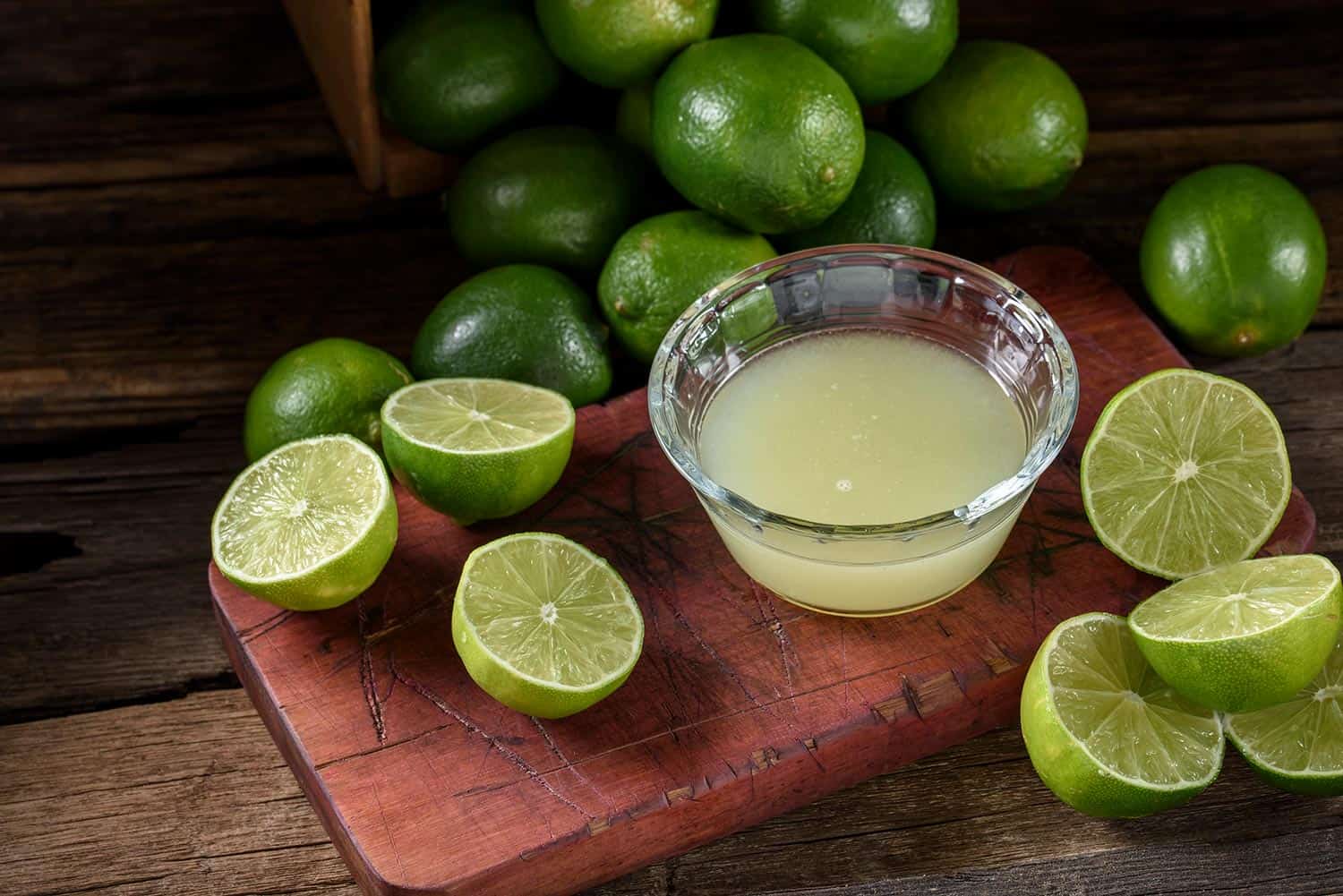
The best replacement for fresh lemon juice is lime juice. Although these two fruits have unique flavor profiles, they have similar pH and citric acid concentrations.
However, many taste-testers believe lime juice is more "bitter" than lemon juice. This may have to do with lime's unique chemical compounds or its lower sugar content.
Still, if you had to choose an alternative to lemon juice, lime juice would most closely mimic lemon's flavors. You could either juice limes fresh or opt for a convenient bottled lime juice.
Find out more on this Amazon link.
By the way, you should expect one lime to have 1 - 2 oz of juice. So, if you're using limes instead of lemons, buy double.
Could You Replace Lemon Juice With Orange Juice?
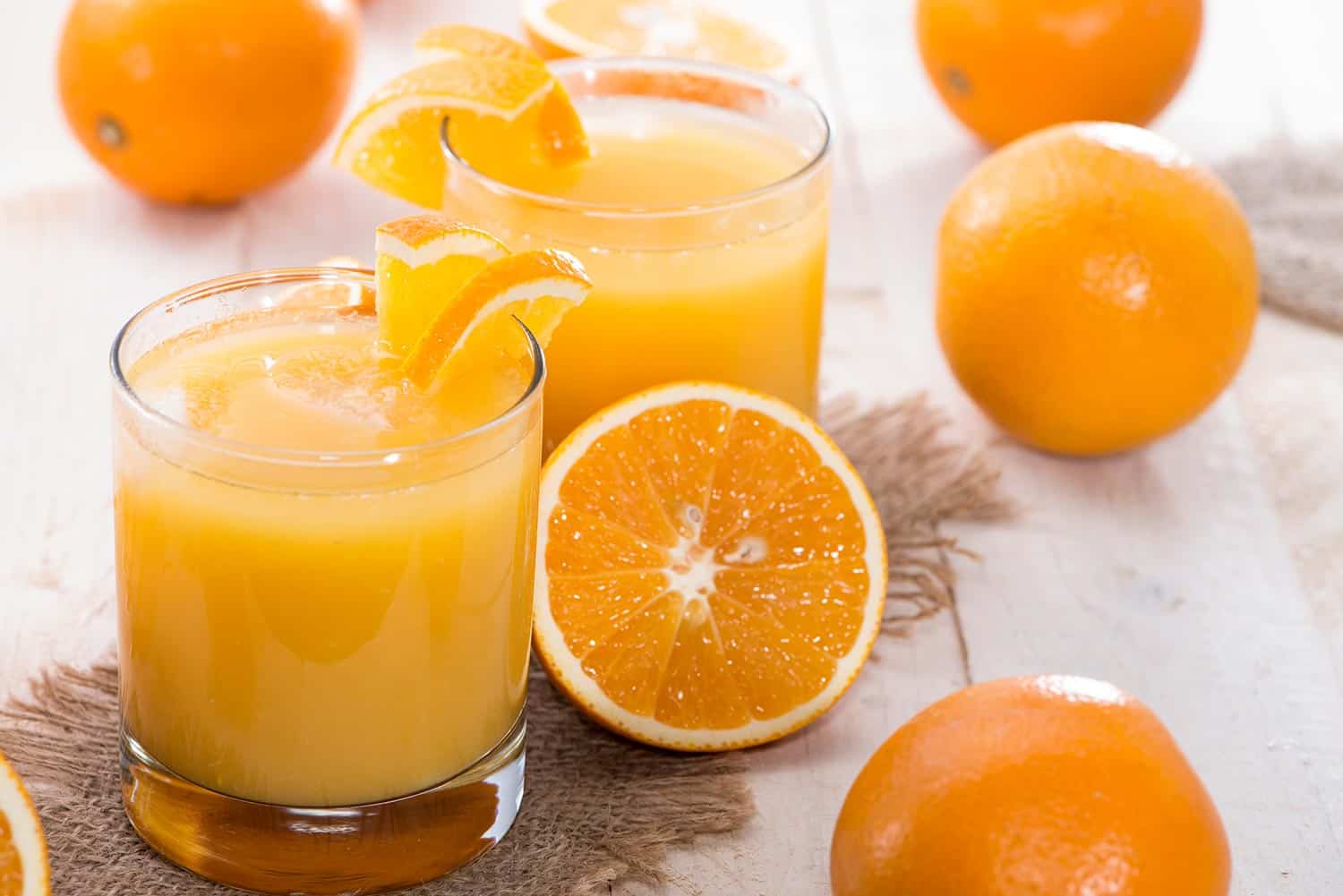
Although orange is a citrus fruit, it's not as tart as lemons or limes. So, while you could substitute orange juice for lemon juice, it will probably make your dish sweeter than it should be.
First, you could try a 1:1 conversion between orange and lemon juice. If you find this is too sweet, you could dilute the orange juice with an equal part of water.
If you still don't enjoy orange juice in your recipe, it's best to use a more acidic alternative like lime juice or citric acid.
Find out more on this Amazon link.
How Do You Get The Most Juice Out Of Lemons?
Most people cut and juice their lemons straight out of the fridge. While that will get the job done, there are many techniques you could use to eke out a few extra ounces of juice.
Be sure to try a few of these tips to get the most liquid out of your lemons.
Warm Your Lemons Before Use
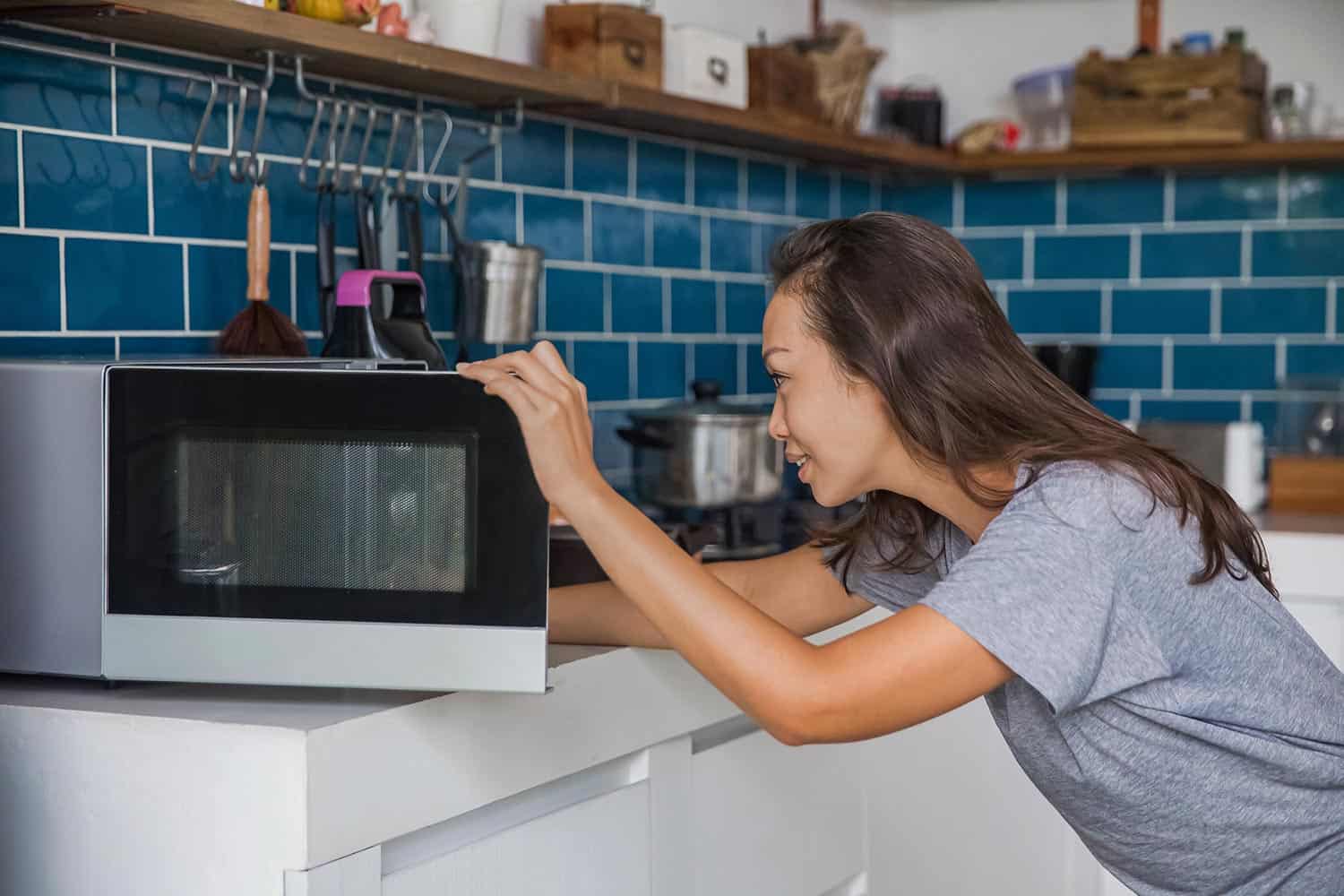
The fridge is great for preserving lemons, but it will make your lemons' internal "pulp" extra stiff. When you squeeze a cold lemon, these chilly cell walls can't release the max amount of juice.
Therefore, the best way to increase a lemon's juice is to warm it up before squeezing it. There are two primary ways to do this:
- Put your lemon in a bowl of warm [not boiling!] water for about 20 minutes.
- Put your lemon in the microwave for 10 - 15 seconds.
Either of these tips should give you significantly more juice.
By the way, you could learn more about heating citrus fruit in our post, "Does Microwaving Lemons And Limes Make Them Juicier?"
Roll Lemons On The Table
There's not much science on whether rolling lemons will increase juice production. However, many chefs swear that giving your lemons a quick roll on the cutting board helps loosen internal membranes.
Like heating lemons, the goal is to break down the lemon's cell walls to release more juice. Since so many kitchen pros recommend this tip, it's worth trying.
To see how to roll a lemon before juicing, you've got to check out this short video:
Cut Lengthwise Rather Than Across
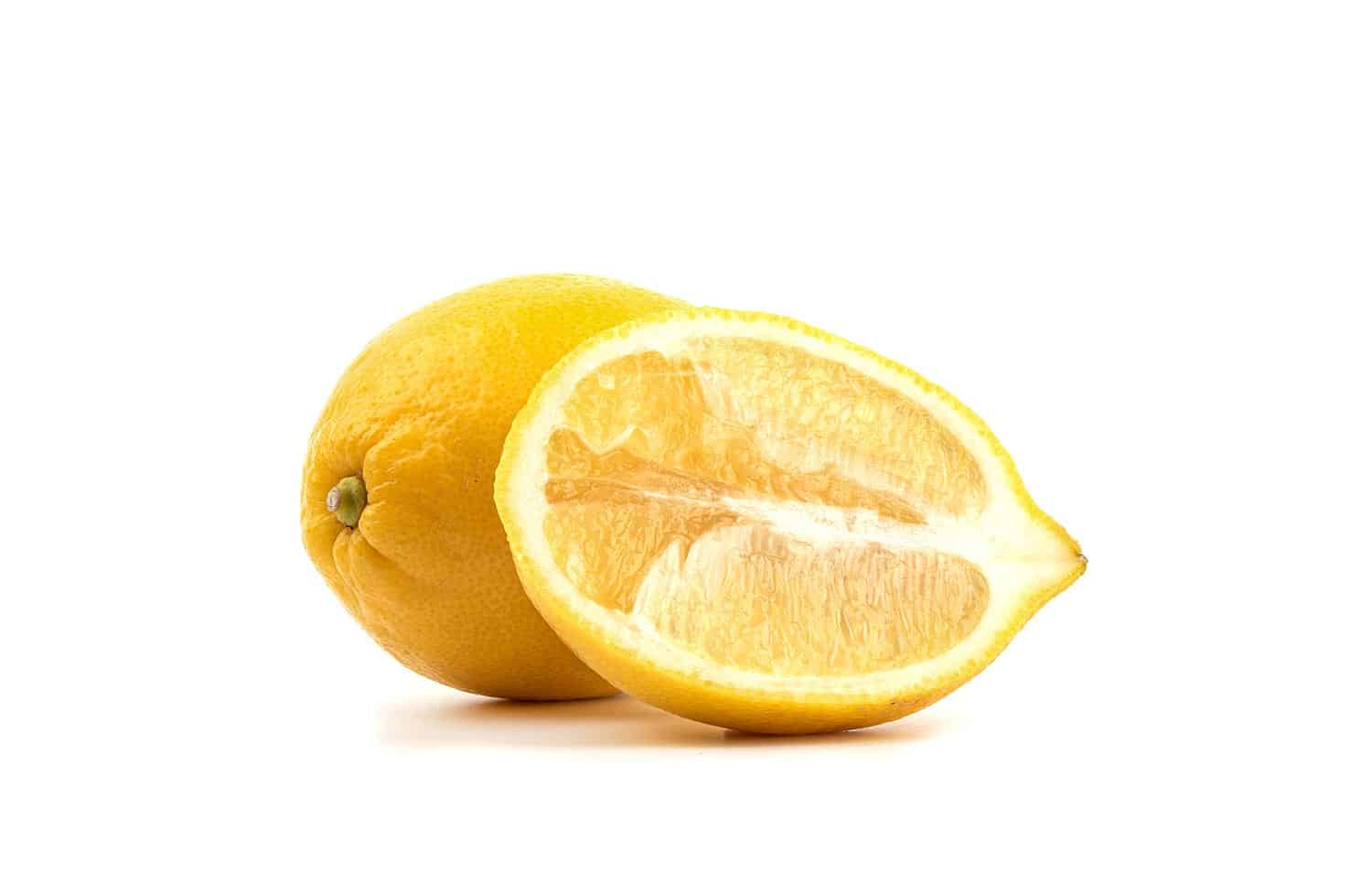
Most people cut lemons across the center, but that may not be the most efficient choice for juice extraction. Interestingly, numerous chefs argue that cutting lemons lengthwise is the better option.
The idea behind this theory is simple: The more surface area there is, the more juice a lemon should produce.
By the way, if you're curious which knife to use for cutting citrus, we'd recommend reading our recent post, "What Can You Cut With A Paring Knife?"
Use A Dedicated Juicing Tool
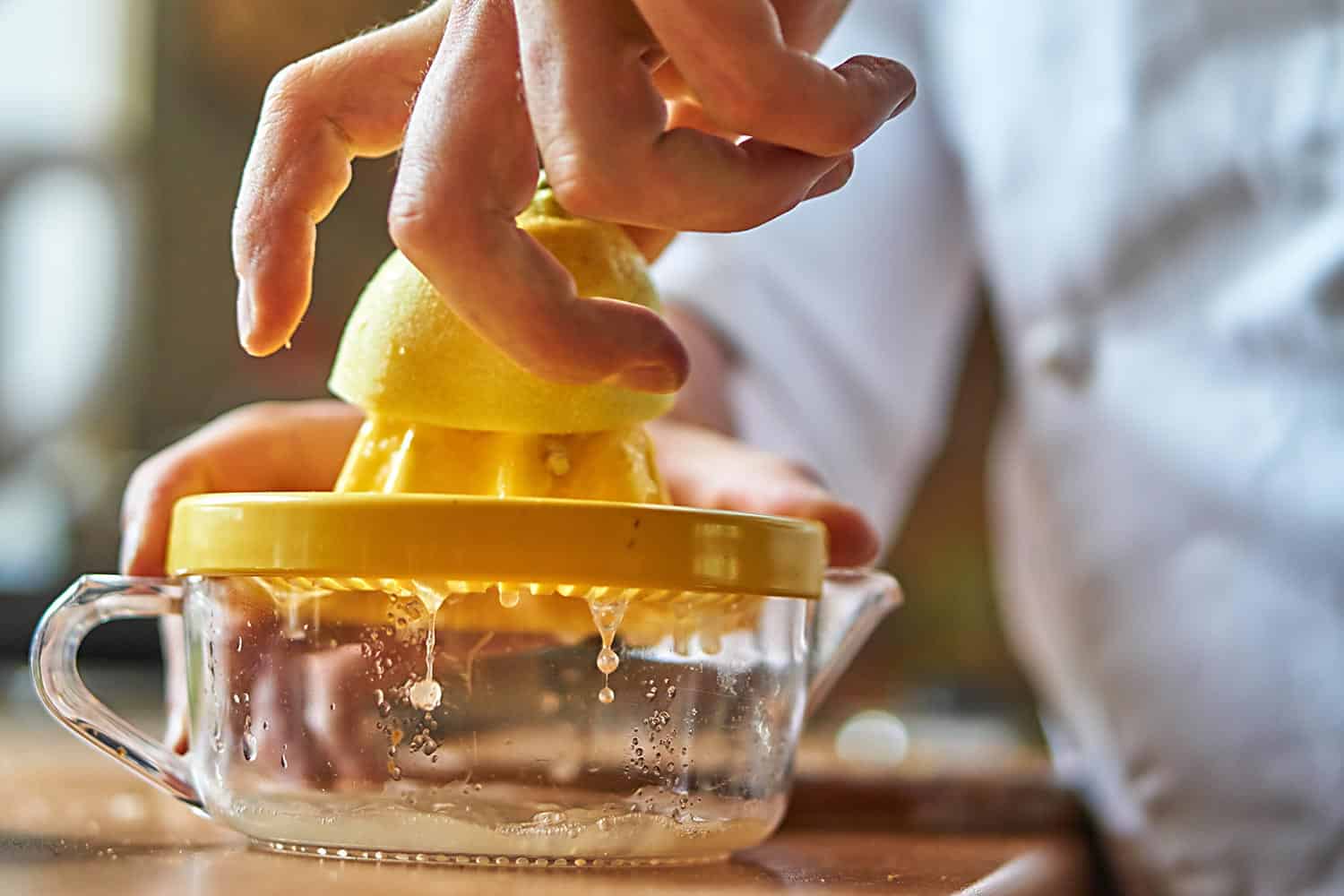
Even if you have superhero wrists, it's almost impossible to wring the max lemon juice by hand. Thankfully, there are dozens of juicing tools designed for citrus fruits.
If you go through a ton of citrus fruits—or you have wrist-related complaints—buying a juicing tool should be a solid investment.
Find out more on this Amazon link.
If you don't feel like investing in a juicing tool, then you may want to check out our post, "How To Juice Lemons In A Food Processor."
When You See "Half A Lemon," Think "A Whole Tablespoon"
There's no exact conversion for "half a lemon" into tablespoons. However, most research suggests the average lemon has 2 - 3 tablespoons of juice. Therefore, it's best to use 1 - 1.5 tablespoons for a "half a lemon."
Of course, you could always tweak these measurements depending on your taste preferences. For instance, people who love extra sour flavors may want to use two tablespoons, while others may dial it back to ½ of a tablespoon.
However, as long as you stay in this ballpark, your recipe's intended "sourness" should be spot on.



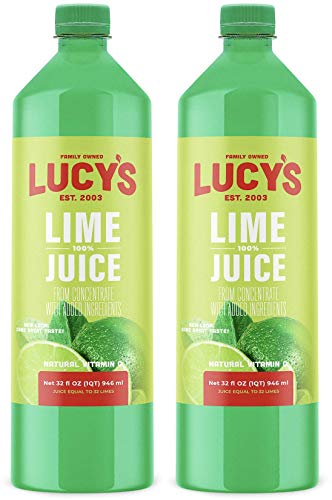


![Hand zesting lemon using a grater, How To Zest A Lemon [5 Ways, Inc. Without A Grater]](https://kitchenseer.com/wp-content/uploads/2021/09/Hand-zesting-lemon-250x250.jpg)
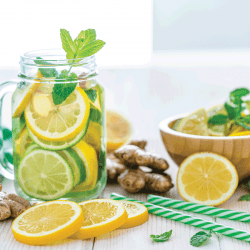
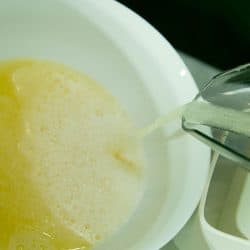
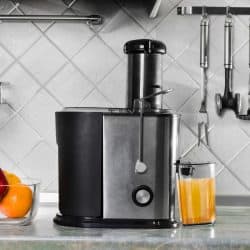


Interesting question! I’m not sure I have a definitive answer, but I think lemon juice would be a good approximation.